Paris 2024: Lopez closer to historic Olympic gold; Fumita, Elor enter finals
Monday, August 5, 2024 - 22:01 By Ken Marantz

PARIS (August 5) -- Mijain LOPEZ (CUB) continued his quest for an unprecedented place in Olympic history, swatting aside all in his path on Monday. The last man standing in his way is a former compatriot who has already made history of his own.
Lopez earned a chance to become the first-ever athlete in any sport to win five gold medals in the same event at the Summer Olympics when he advanced to the Greco 130kg final on the opening day of the wrestling competition at the Paris Olympics.
"Very happy, very proud," Lopez said. "It's been a sacrifice for a career lasting so many years, and it's beautiful for the next generations so that they have something to aspire to."
Meanwhile, Kenichiro FUMITA (JPN) earned a chance to make up for his disappointing silver medal at the Tokyo Olympics at Greco 60kg -- and gained revenge in the process -- while young Amit ELOR (USA) looks poised to complete the "Golden Grand Slam" of titles by making the women's 68kg final.
Lopez, competing for the first time since winning his fourth gold at the Tokyo Olympics three years ago, set up his date with destiny in Tuesday's final by defeating 2016 Rio Olympic bronze medalist Sabah SHARIATI (AZE) 4-1 in the semifinals at the Champs de Mars Arena.
The 41-year-old Lopez got the first chance in par terre and made the most of it with a well-executed gut wrench to go up 3-0 in the first period.
Put on the bottom in the second period, Lopez went beyond just putting up stiff resistance. The Iranian-born Shariati, a veteran himself at 35, managed to lift the Cuban off the mat, but when he tried to force a roll, Lopez nimbly stepped over and gained control for a 1-point reversal.

Lopez, who has not lost a match since falling to long-time rival Riza KAYAALP (TUR) in the final at the 2015 World Championships, will face Cuban-born Yasmani ACOSTA (CHI) for the gold medal.
"It will be beautiful, special, not only for me but for the whole world," Lopez said of facing Acosta. "It's going to be a final between two Cubans, it's going to be spectacular. A result that the world will enjoy but particularly my brothers in Cuba."
Acosta assured Chile of its first-ever Olympic medal in wrestling when he outlasted Lingzhe MENG (CHN) 1-1 on last-point criteria in the other semifinal.
Acosta got the second of the two passivity points awarded, after which neither was able to turn the other. Meng was given a second chance in par terre with a minute to go but was unable to get any points off a front headlock.
Lopez expressed his joy that Acosta has clinched a medal after coming up just short in Tokyo by placing fifth.
"We've always been brothers, we've always been friends in wrestling, it's going to be beautiful for him, to win an Olympic medal and for me," Lopez said. "He deserves a medal. Chile has asked him to win that medal, and they have given him the support and the chance to compete."

At Greco 60kg, Fumita advanced to the final by defeating nemesis Zholaman SHARSHENBEKOV (KGZ), using a masterful 4-point throw to score a 4-3 victory over the two-time reigning world champion.
The victory avenged a loss to Sharshenbekov in the final at last year's World Championships in Belgrade, when the Kyrgyz star prevailed 11-6 in a thoroughly entertaining throwfest that uniquely featured no passivity points.
On Monday, Fumita, a two-time former world champion himself, held tough on the bottom of par terre to go into the second period trailing 1-0. Early in the second period, he locked onto Sharshenbekov's right arm and hit an elegant back suplex for 4.
Sharshenbekov, who had not lost since June 2022 and had put together a streak of 10 consecutive tournament titles, went on the offensive and used a nice duck under for a takedown to cut the gap to 4-3.
But Fumita stood his ground and conceded nothing to clinch the win and earn a chance to make up for his devastating loss in the Tokyo Olympic final to Luis ORTA (CUB) and become Japan's first Greco gold medalist since Atsuji MIYAHARA (JPN) in 1984.
For Fumita, winning an elusive gold in Paris would be particularly special. "Paris is a special place because I won my first world title here in 2017," he told the Japanese media.
"I think that the wrestling gods are telling me that by making the final, I have to win the gold. I have one more match and I will give everything so that it will be said that Fumita is indeed strong."
Facing him in the final will be world bronze medalist Liguo CAO (CHN), who scored an exposure at the buzzer for a stunning 3-3 win on last-point criteria over Asian Games bronze medalist Se Ung RI (PRK).
Ri appeared headed to a 3-1 victory after getting a gut wrench from par terre in the first period and holding out on the bottom in the second. But Cao managed to get behind from standing in the waning seconds and, with Ri keeping a solid base and his knees off the mat, Cao pulled him back and over for a 2-point exposure just as time expired. In the final, Cao will look to avenge a 3-1 loss to Fumita in the quarterfinals in Belgrade.
Elor stormed into the women's 68kg final with a 10-0 victory over teenager Sol Gum PAK (PRK) as she looks to join Yui SUSAKI (JPN) as the only wrestlers to add an Olympic gold to titles on all four age-group levels at the World Championships.
Elor, a two-time world champion at 72kg who moved down to the Olympic weight, used a snapdown to get behind Pak for a takedown, then applied a lace lock and reeled off four rolls to end the match at 1:44.
"I've been training a lot with my coach to make sure that after I get a takedown, I don't overlook the thought of getting a turn," the 20-year-old Elor said. "Turns make a huge difference, and I think a lot of times, I'll get a takedown and I'll think, 'Oh, no no, let's just go back to our feet.'
"But it makes a huge difference, and you saw that in a match like that. One takedown, four turns, and the match is over. My immediate thought was, bring her legs together, you have to get at least one lace. And it worked for me."

Looking to stop Elor will be Meerim ZHUMANAZAROVA (KGZ), who won a clash of Tokyo Olympic medalists in the other semifinal to move one win away from becoming Krygyzstan's first-ever Olympic gold medalist in any sport.
Zhumanazarova scored a second-period takedown, then fended off a late attempt by veteran Blessing OBORUDUDU (NGR) to score a 3-1 victory. That avenged a 3-2 loss to Oborududu in the quarterfinals in Tokyo, where the Nigerian went on to take the silver medal and Zhumanazarova came home with a bronze.
Earlier, Zhumanazarova pulled off a major coup by defeating two-time world champion Nonoka OZAKI (JPN), building up a 6-0 lead before holding on for an 8-6 win.
Elor said she had prepared to face any opponent. "I like to focus on one opponent at a time, but before this competition, I thoroughly watched and analyzed all of my opponents," she said. "I honestly think that each and every opponent has their own challenges, and so however the bracket came out, I knew that I was ready for anybody."
Day 1 Results
Greco-Roman
60kg
SF 1: Kenichiro FUMITA (JPN) df. Zholaman SHARSHENBEKOV (KGZ), 4-3
SF 2: Liguo CAO (CHN) df. Se Ung RI (PRK), 3-3
130kg
SF 1: Mijain LOPEZ (CUB) df. Sabah SHARIATI (AZE), 4-1
SF 2: Yasmani ACOSTA (CHI) df. Lingzhe MENG (CHN), 1-1
Women's Wrestling
68kg
SF 1: Amit ELOR (USA) df Sol Gum PAK (PRK) by TF, 10-0, 1:44
SF 2: Meerim ZHUMANAZAROVA (KGZ) df. Blessing OBORUDUDU (NGR) 3-1



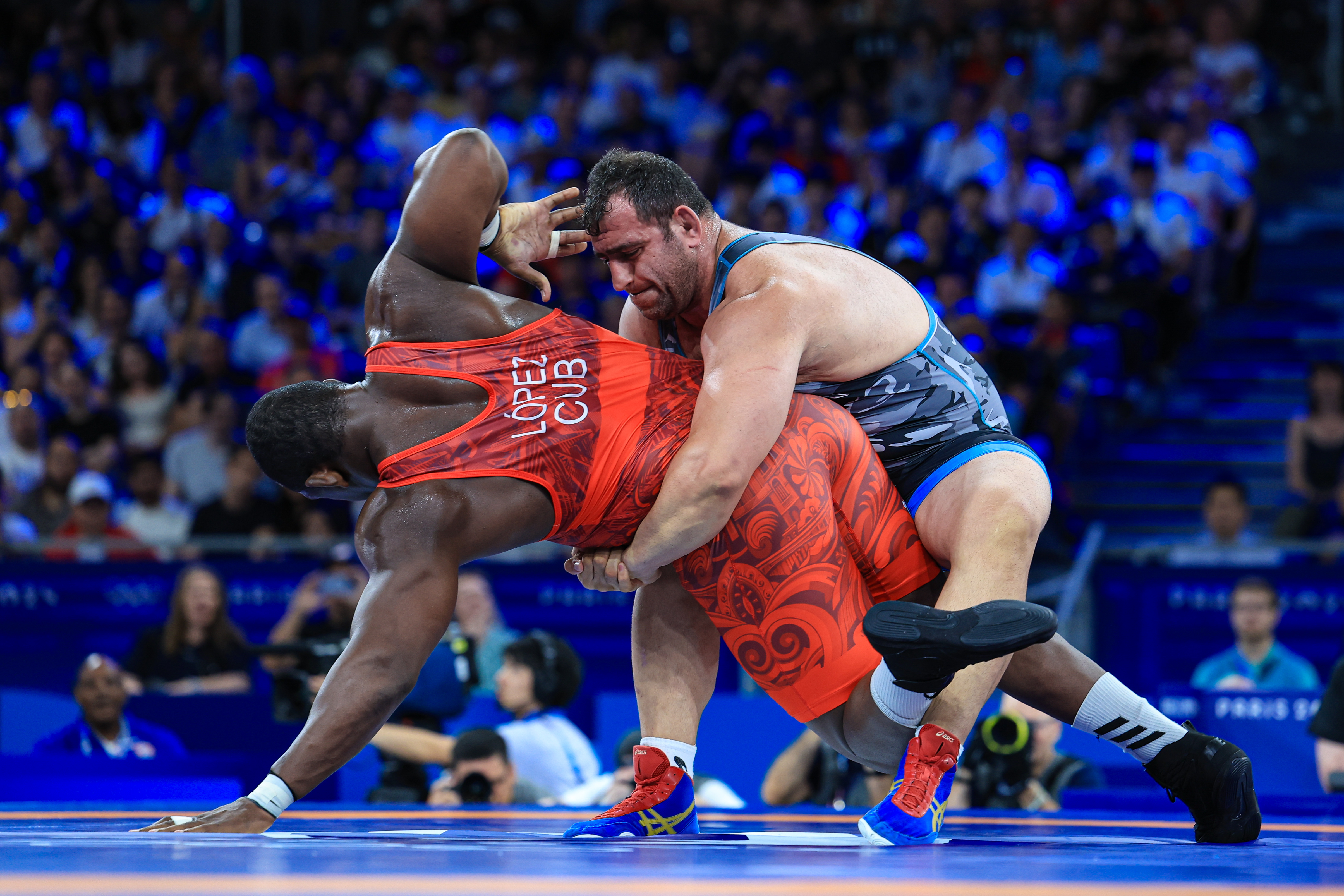
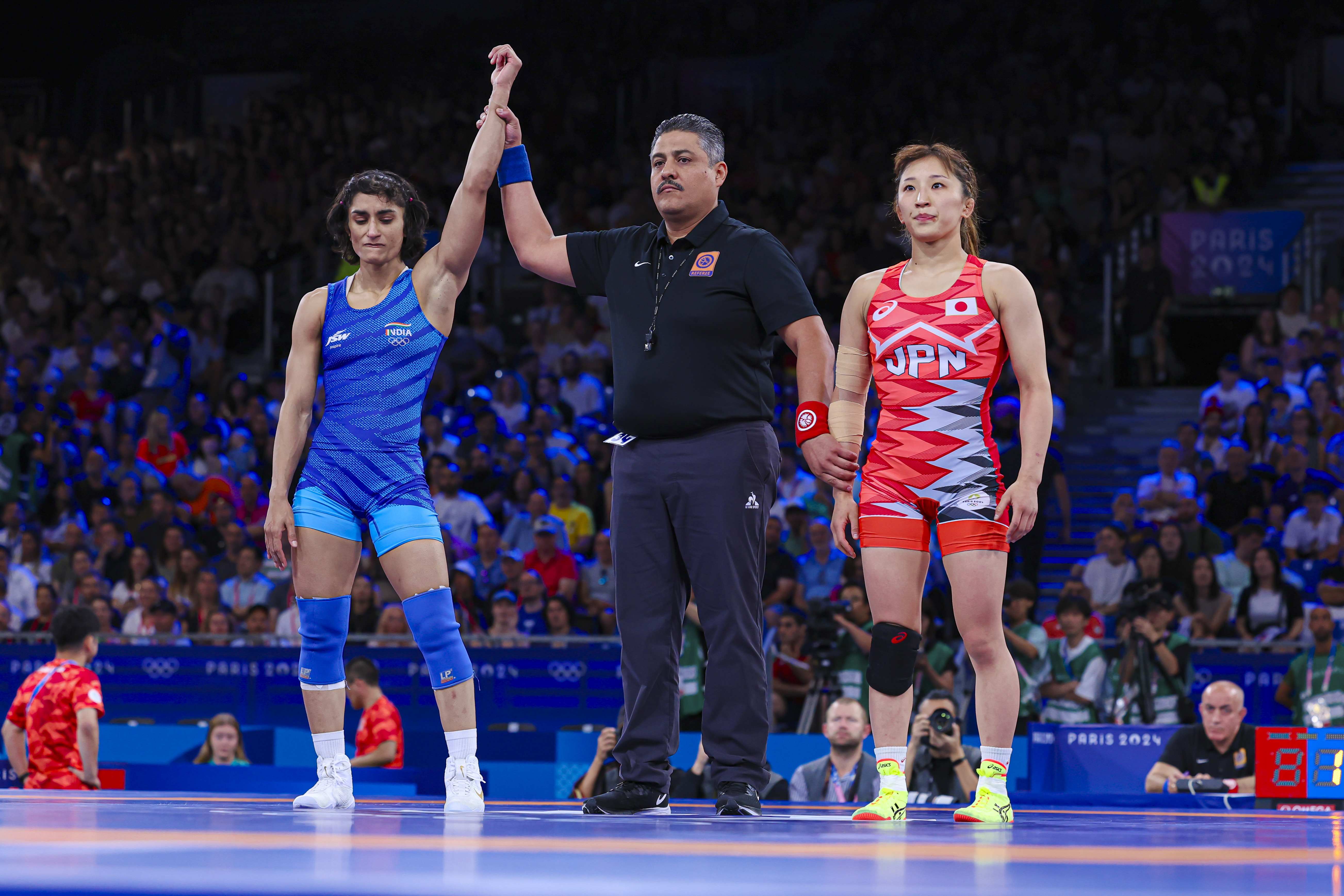
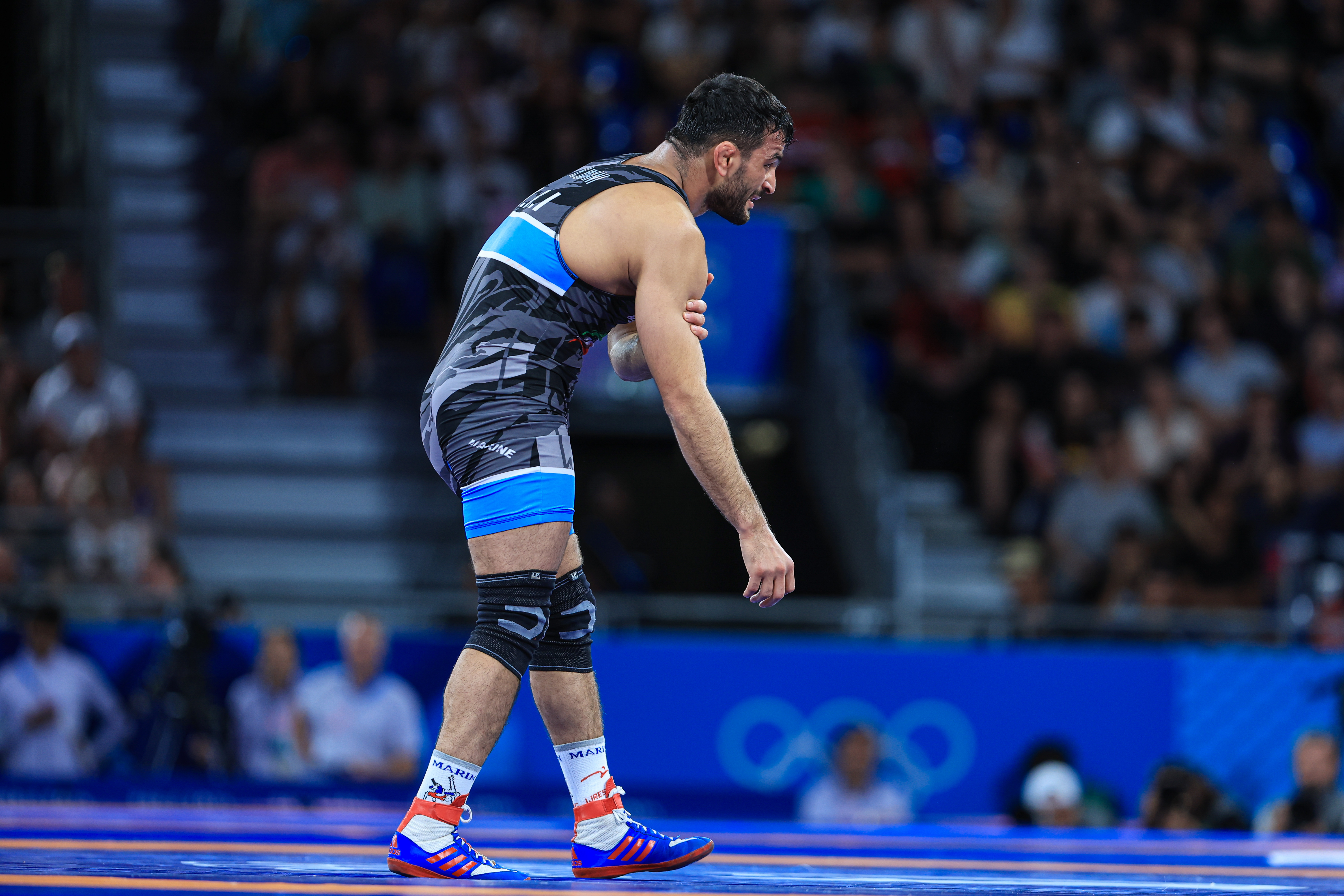




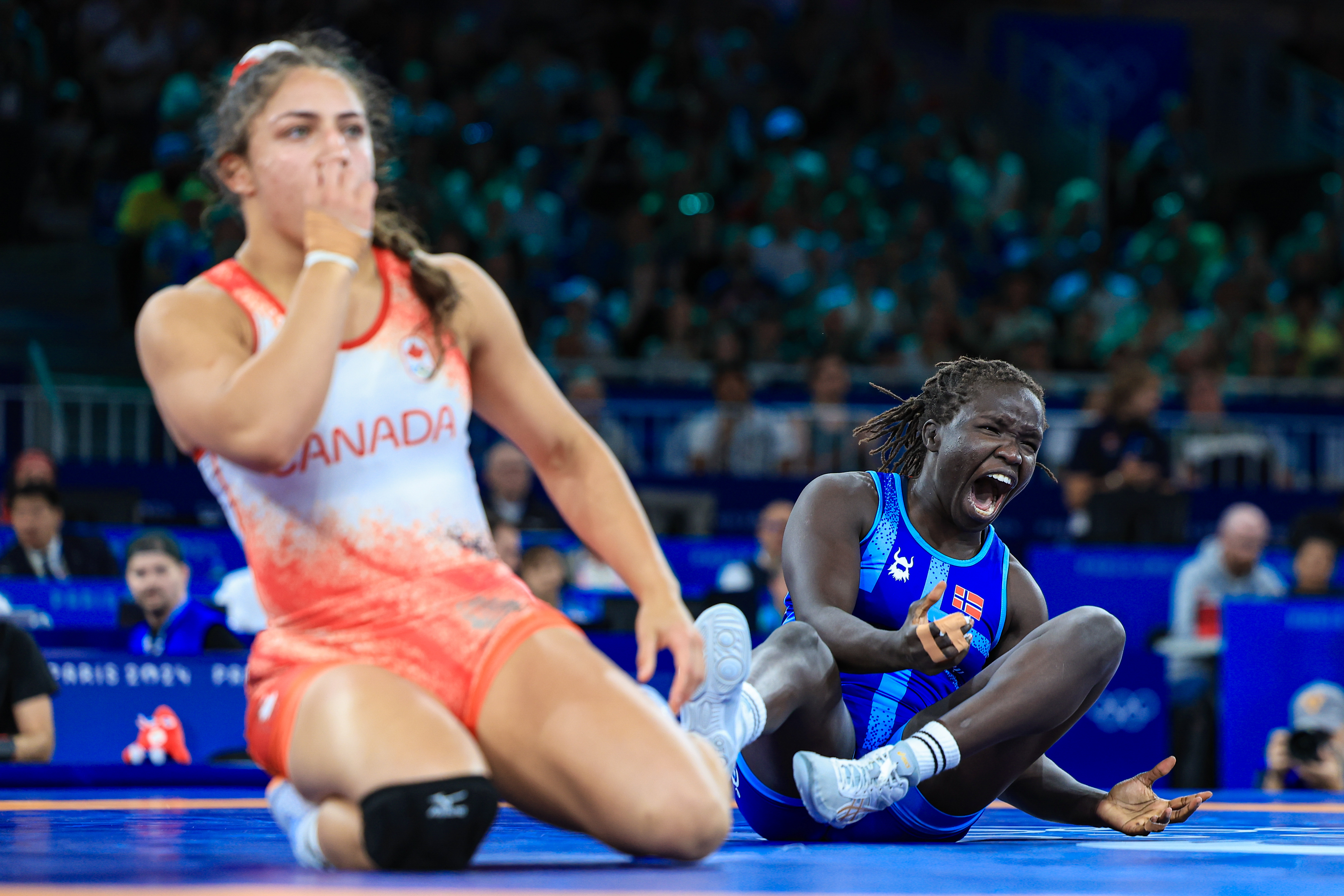


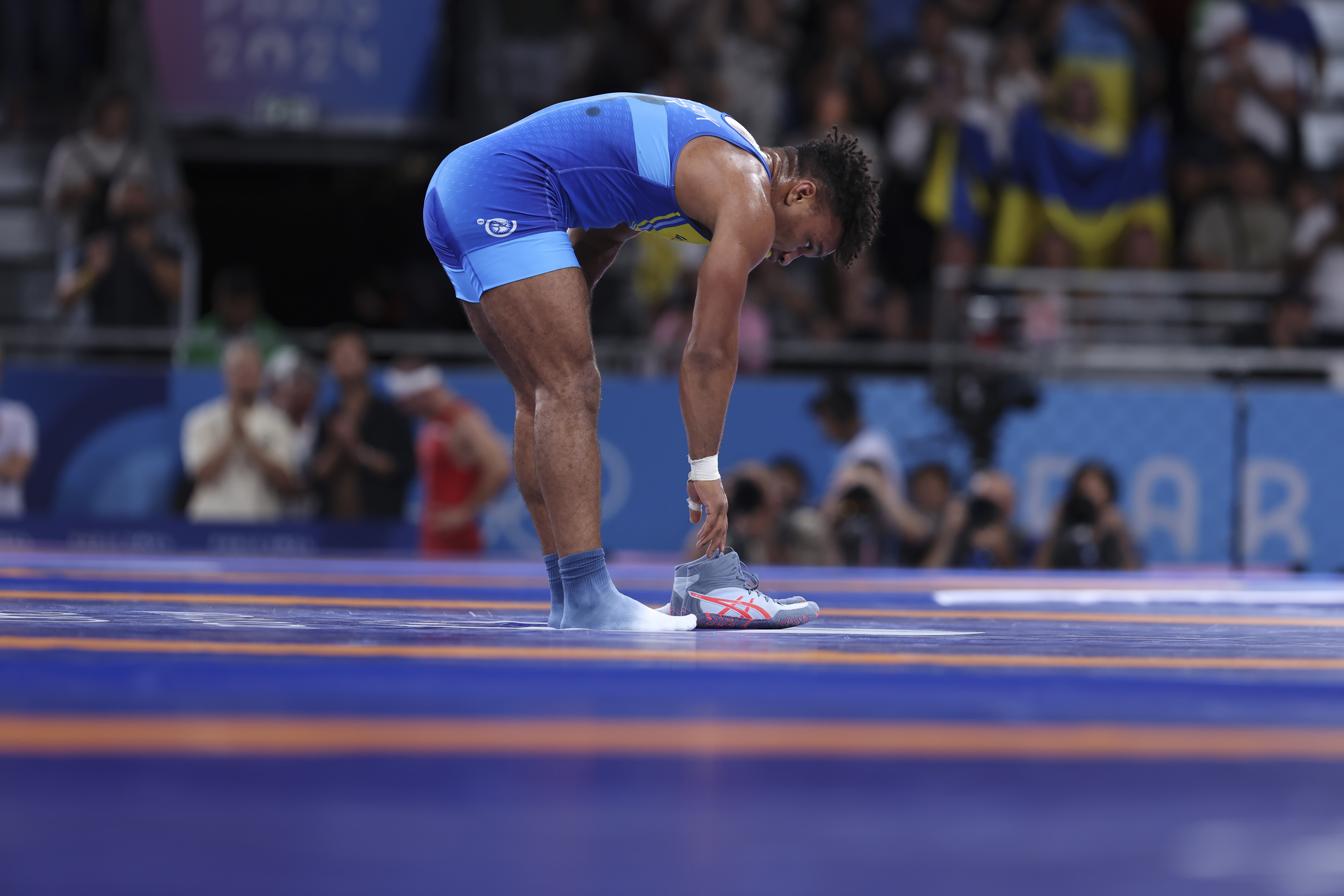
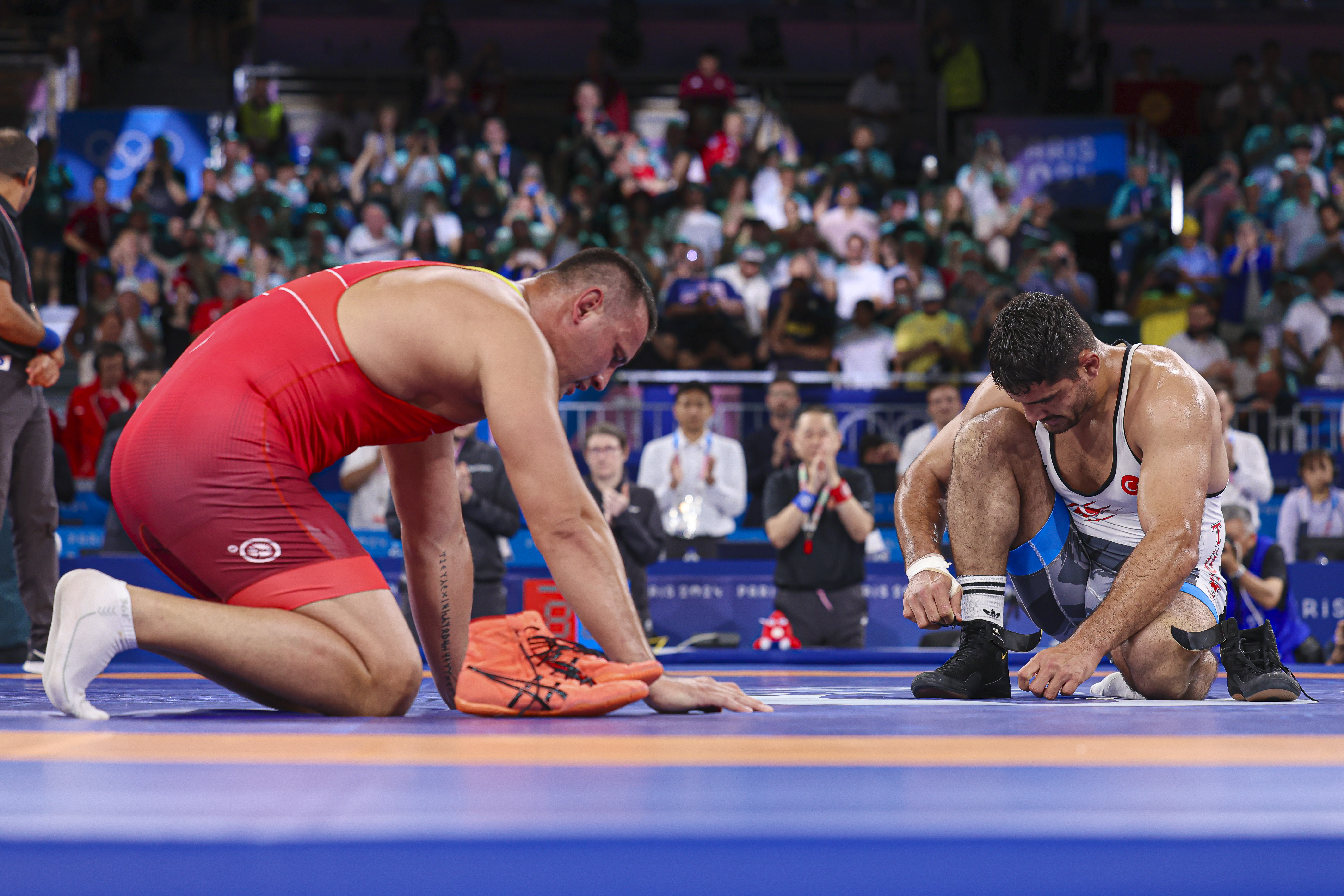
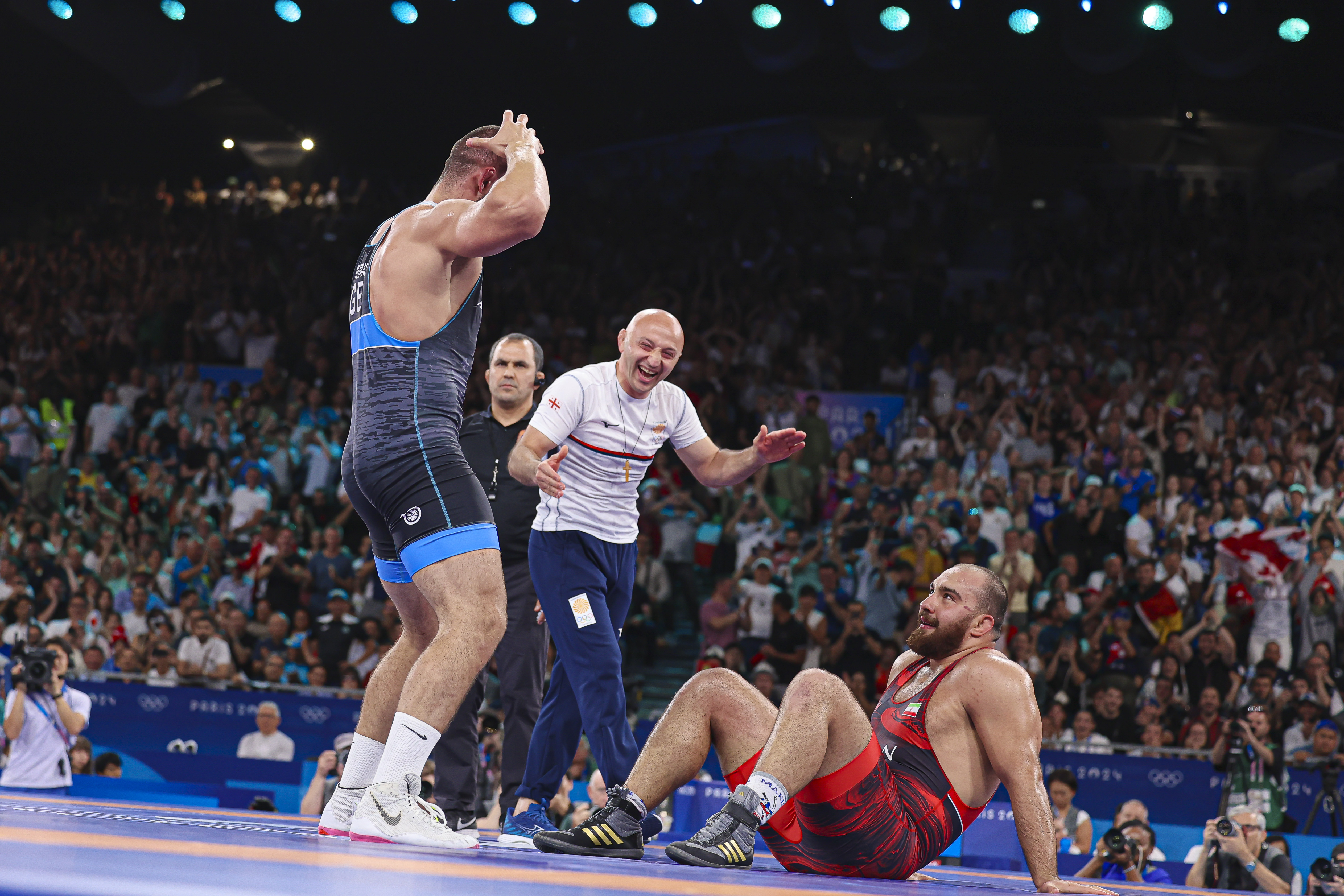

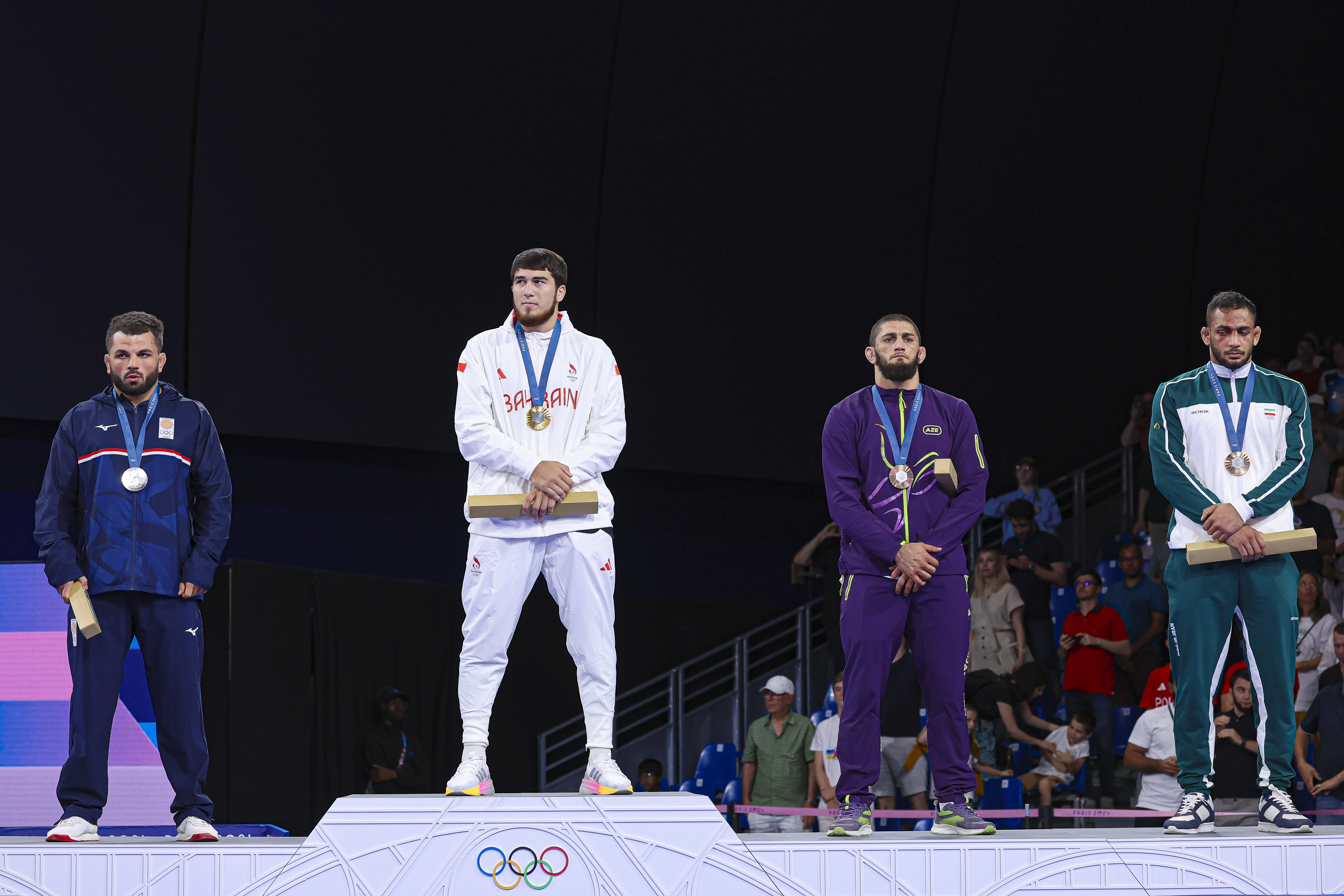


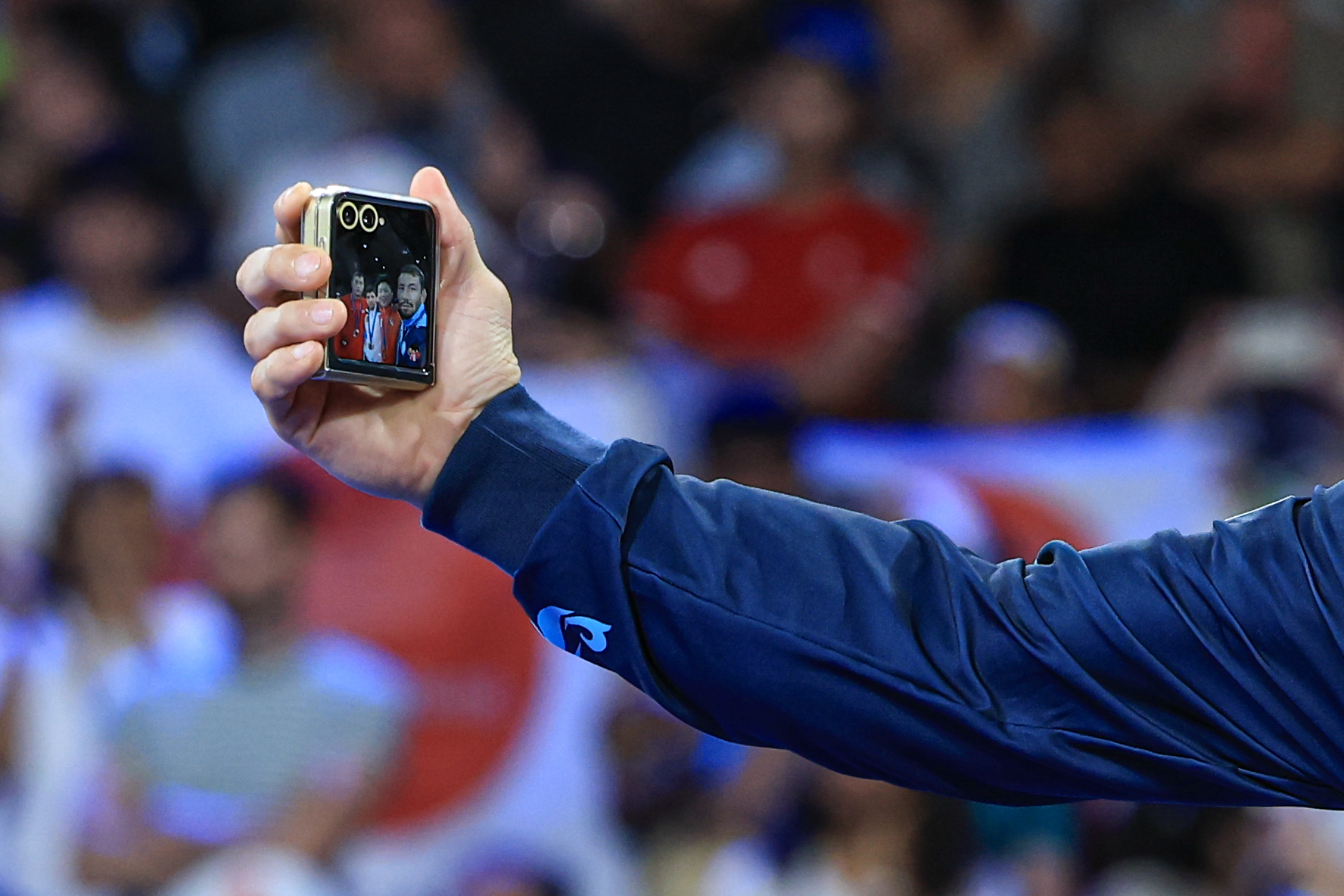
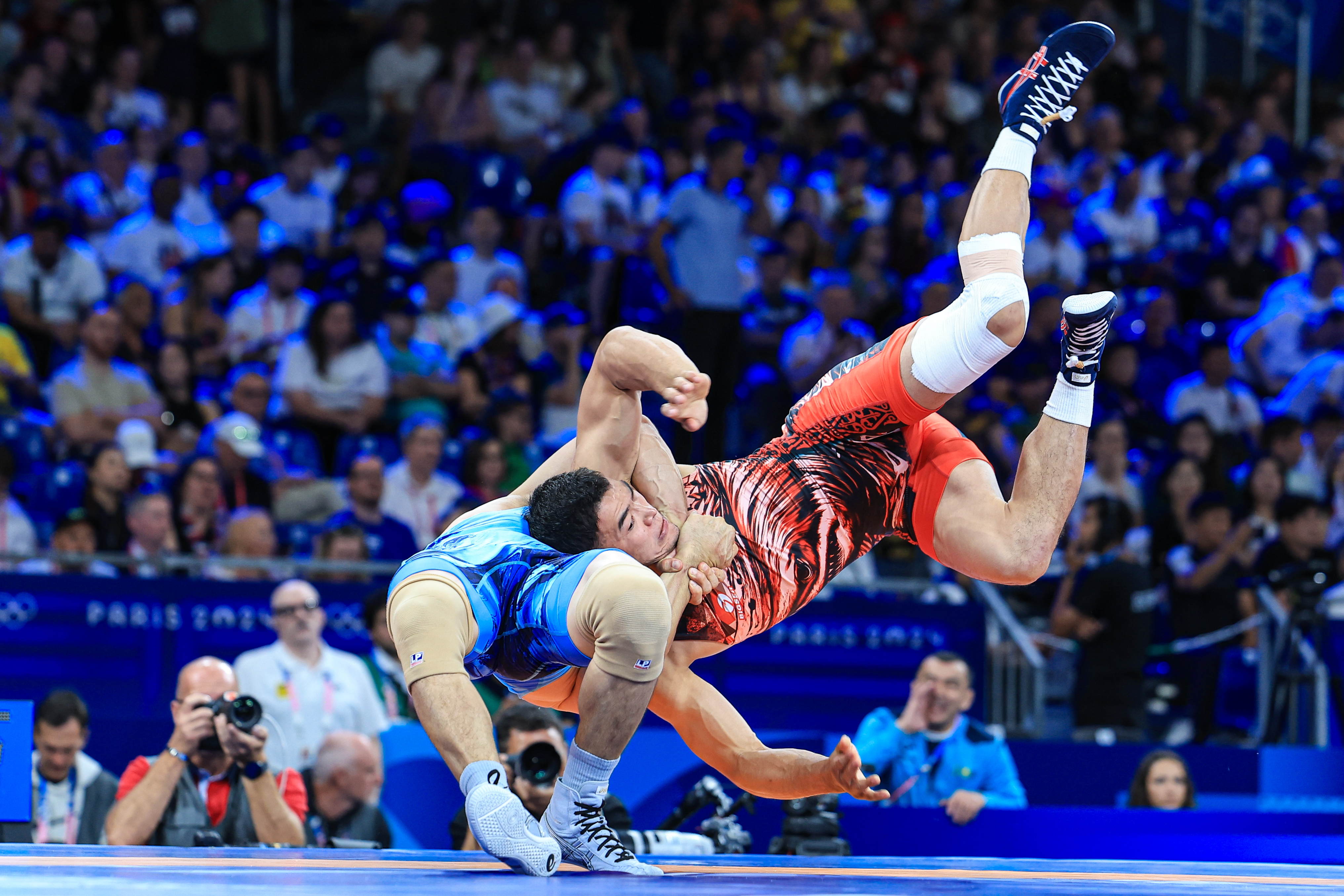

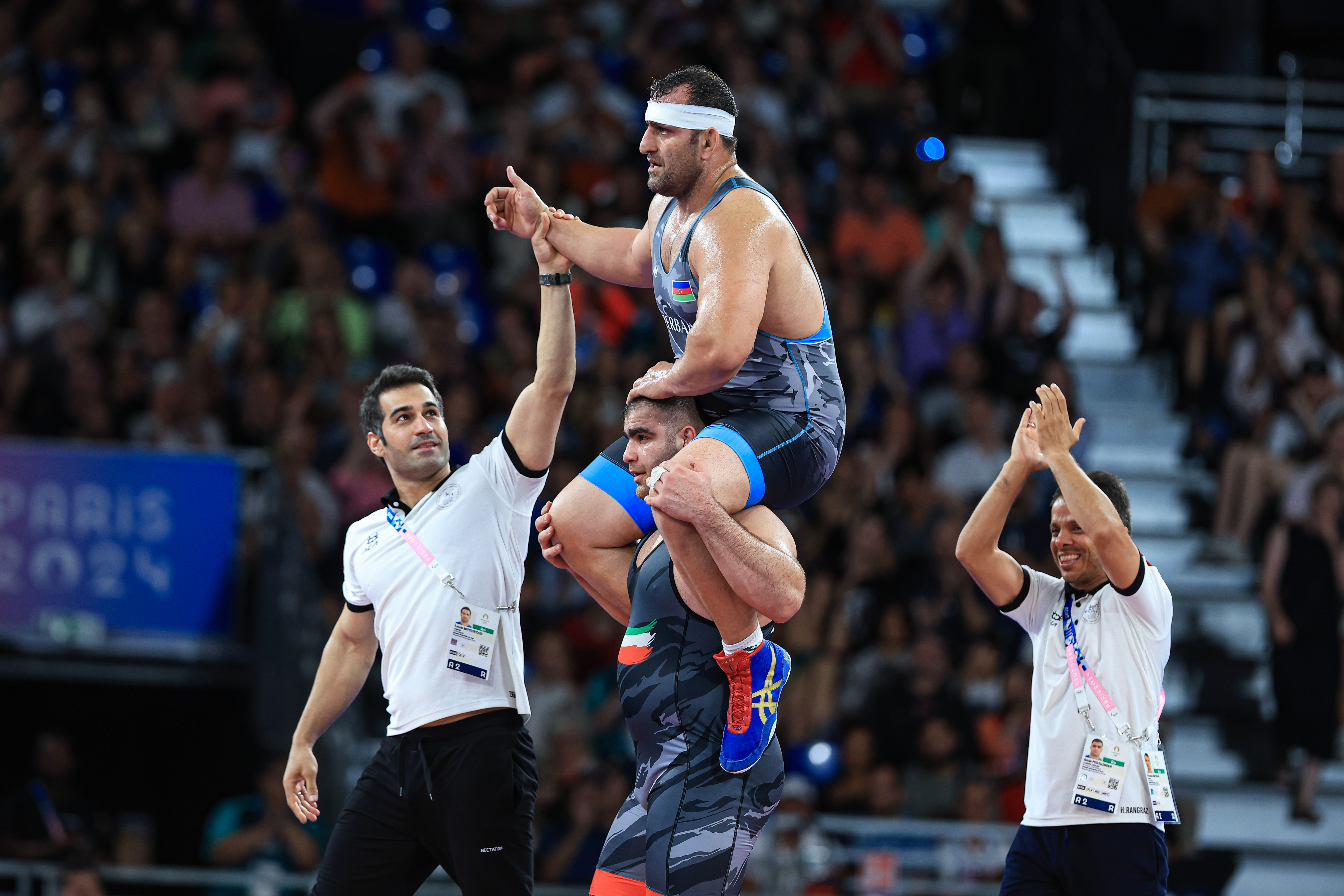


Share your thoughts.
Comments